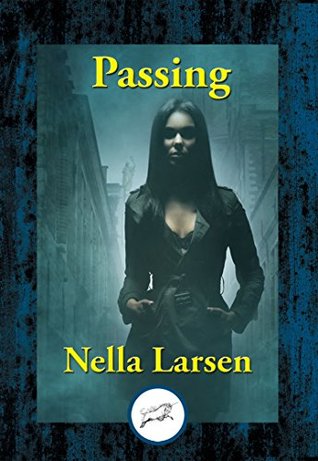More on this book
Community
Kindle Notes & Highlights
Stepping always on the edge of danger. Always aware, but not drawing back or turning aside.
“Have you ever stopped to think, Clare,” Irene demanded, “how much unhappiness and downright cruelty are laid to the loving-kindness of the Lord? And always by His most ardent followers, it seems.”
It was as if the woman sitting on the other side of the table, a girl she had known, who had done this rather dangerous and, to Irene Redfield, abhorrent thing successfully and had announced herself well satisfied, had for her a fascination, strange and compelling.
She had, she told herself, no inclination to speak of a person who held so low an opinion of her loyalty, or her discretion.
Why hadn’t she spoken that day? Why, in the face of Bellew’s ignorant hate and aversion, had she concealed her own origin? Why had she allowed him to make his assertions and express his misconceptions undisputed? Why, simply because of Clare Kendry, who had exposed her to such torment, had she failed to take up the defense of the race to which she belonged?
She said: “It’s funny about ‘passing.’ We disapprove of it and at the same time condone it. It excites our contempt and yet we rather admire it. We shy away from it with an odd kind of revulsion, but we protect it.” “Instinct of the race to survive and expand.”
There was a piercing agony of misery in her heart. She hadn’t intended to behave like this, but her extreme resentment at his attitude, the sense of having been willfully misunderstood and reproved, drove her to fury.
“I’m beginning to believe,” she murmured, “that no one is ever completely happy, or free, or safe.”
And, no matter how often she came among them, she still remained someone apart, a little mysterious and strange, someone to wonder about and to admire and to pity.
And yet in the short space of half an hour all of life had changed, lost its color, its vividness, its whole meaning. No, she reflected, it wasn’t that that had happened. Life about her, apparently, went on exactly as before.
She wanted, suddenly, to shock people, to hurt them, to make them notice her, to be aware of her suffering.
In that second she saw that she could bear anything, but only if no one knew that she had anything to bear.
hurt. It hurt like hell. But it didn’t matter, if no one knew.
But she did not look the future in the face. She wanted to feel nothing, to think nothing; simply to believe that it was all silly invention on her part. Yet she could not. Not quite.
She was caught between two allegiances, different, yet the same. Herself. Her race. Race! The thing that bound and suffocated her.
Sitting alone in the quiet living room in the pleasant firelight, Irene Redfield wished, for the first time in her life that she had not been born a Negro. For the first time she suffered and rebelled because she was unable to disregard the burden of race. It was, she cried silently, enough to suffer as a woman, an individual, on one’s own account, without having to suffer for the race as well. It was a brutality, and undeserved. Surely no other people so cursed as Ham’s dark children.
She took up a book, but she could not read, so oppressed was she by a nameless foreboding.
But she says she’d rather be dead than bored.”
“Death by misadventure, I’m inclined to believe. Let’s go up and have another look at that window.”


